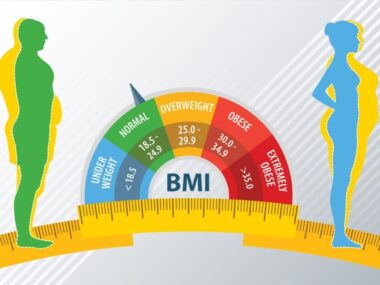Weight can affect a person’s ankylosing spondylitis (AS) in a number of ways. For instance, chronic discomfort from AS might make it difficult to move around, which lowers activity levels and increases weight.
It is difficult to understand how weight and AS are related.
On the one hand, AS symptoms like pain and limited movement can make a person inactive, which can lead to weight gain. On the other hand, side effects such as inflammatory bowel disease (IBD) might cause weight loss. The effectiveness of AS treatments may also be impacted by a person’s body weight.
For AS to be managed, it is essential to understand the complex relationship between weight and the condition.
How is weight impacted by AS?
Chronic stiffness, weariness, and pain are symptoms of AS. By reducing physical activity levels, diminishing range of motion, and restricting everyday activities, these symptoms may indirectly affect weight.
Reduced activity results in lower calorie usage, which can lead to weight gain.
Additionally, a side effect of certain drugs used to treat AS is weight gain. Prednisone and TNF-a inhibitors are some of these.
On the other hand, some persons with AS experience weight loss.
IBD and other digestive problems that affect appetite and weight can be brought on by AS. A balanced diet may be difficult for some people to follow, which can result in unwanted weight loss and malnutrition.
According to studies, malnutrition affects around 1 in 4 people with AS. Even if a person has a “normal” body mass index (BMI), it is vital to remember that this is not a healthy or advisable technique to lose weight because it might result in major issues.
Can obesity make Ankylosing Spondylitis worse?
Obesity and higher body weight have a negative impact on the severity of the disease, how well patients respond to treatment, and the overall results of AS. Weight does not directly worsen AS.
Bones and joints are put under more strain when a person is overweight. People with AS have increased pain because their vertebrae are under additional pressure. Therefore, having more weight may make this ache worse. The strain also hastens the development of the illness and harm to the affected areas.
However, symptoms can also get worse if you’re underweight.
In a 2021 study, it was discovered that both underweight and obese people had worse disease activity. The authors point out that in order to get the best results from treatment, it was usually advisable to strive for a moderate weight.
Tips for managing weight with AS
For those with AS, maintaining a healthy weight is essential since it can help with disease management. Additionally, it lowers the chance of problems like heart disease.
Here are some weight-management suggestions for people with AS:
Try stress management: Weight gain and bad eating habits can both be influenced by chronic stress. Explore methods for reducing stress, such as deep breathing exercises, meditation, or indulging in relaxing hobbies or pastimes. Finding constructive strategies to deal with stress can help with weight management and general wellbeing.
Engage in physical activity: People can try low-impact exercises like yoga, cycling, and swimming. Consult a physical therapist or exercise specialist to create a safe exercise program that is suited to the individual’s demands and restrictions.
Eat a balanced diet: Concentrate on eating a nutrient-dense, well-balanced diet that includes a selection of fruits, vegetables, whole grains, lean proteins, and healthy fats. Include foods that reduce inflammation as much as you can, such as fatty salmon, olive oil, almonds, and a variety of fruits and vegetables. Think about seeking the advice of a licensed dietitian, who can offer customized nutrition and meal planning advice.
Try portion control: To prevent overeating, it is a good idea to pay attention to portion size. It also helps to practice mindful eating by chewing each bite slowly and paying attention to your body’s signals of hunger and fullness.
Seek support: Think about connecting with individuals who have ankylosing spondylitis or joining support groups. Sharing experiences and ideas with others who are dealing with comparable difficulties can inspire, encourage, and offer useful weight-control guidance. The Spondylitis Association of America and other groups are excellent sources for information.
When to seek medical help
A prompt intervention and adequate management depend on knowing when to call a doctor. A person needs to get medical help if they:
- experience new or worsening AS symptoms, such as increased joint pain, stiffness, swelling, or reduced mobility
- have severe pain that current treatments do not adequately control
- notice any unusual symptoms or complications beyond the typical manifestations of AS, such as eye problems or changes in bowel habits
- experience bothersome side effects from AS medications
A person should see a doctor if they have symptoms of depression, anxiety, or other mental health concerns since mental health is crucial to overall well-being.
Final Thoughts
Ankylosing spondylitis and weight have a complicated relationship. It has the potential to affect joint mechanics, disease activity, and therapy response.
Adopting a balanced diet, exercising regularly, using portion control, and stress management techniques are the keys to managing weight with AS.
People with AS may be able to reduce their symptoms, achieve better treatment results, and improve their quality of life by keeping a healthy weight.





